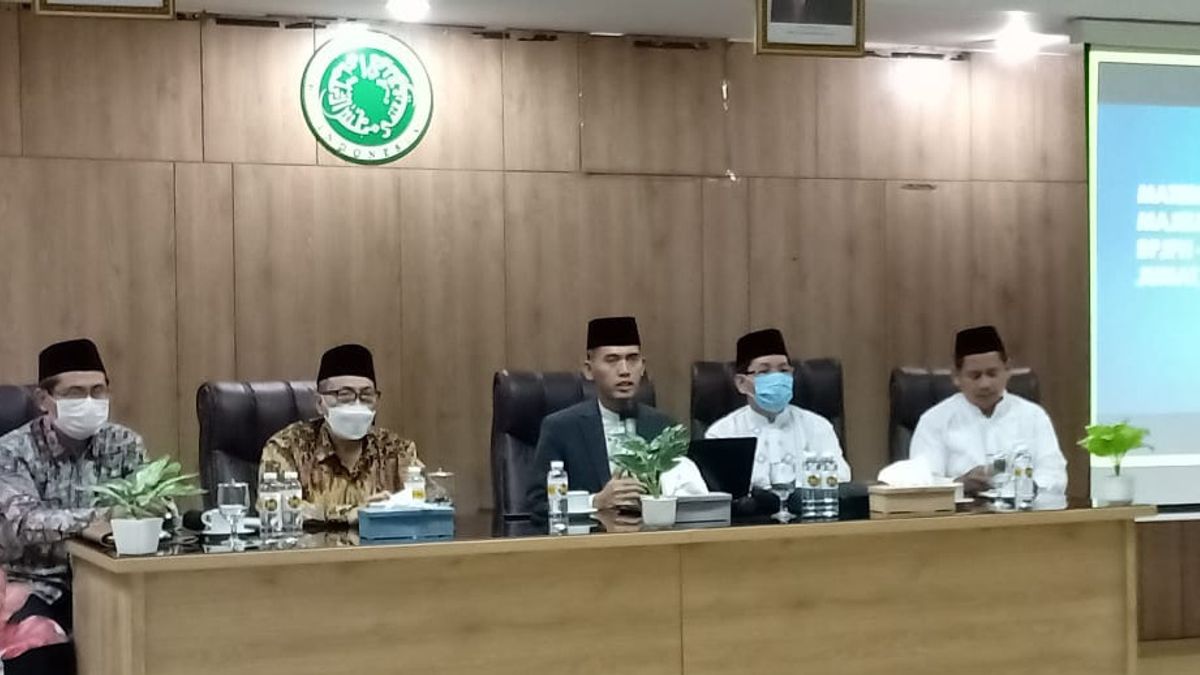JAKARTA - The Indonesian Ulema Council (MUI) straightened out the issues circulating in the community that the halal label was taken over by the Ministry of Religion's (BPJPH) Halal Product Assurance Agency (BPJPH).
The head of the MUI for Fatwa, KH Asrorun Niam Sholeh, explained that the halal label is a state administrative area. This has been in effect before and after the Halal Product Guarantee Act (JPH).
"So the narration of some people stating that the halal label moved from MUI to BPJPH, or BPJPH took over the halal label from MUI to BPJPH is not true. It is based on historical history," he said at the MUI Building, Central Jakarta, Friday, March 18.
Kiai Asrorun said, both before and after the JPH Law, MUI had only carried out its duties and functions to issue halal certification through the process of examination, fatwa, and issuance of halal certification as mandated by the state to MUI.
"But if the label is halal, both before and after the JPH Law. MUI is not included in that area," he added.
Kiai Asrorun said that prior to the JPH Law, the authority was in the Ministry of Health (Depkes) and the POM Agency. This is based on food labels which are the domain of the POM Agency on the basis of Law Number 18 of 2012 concerning Food.
“One of the food labels contains halal information and then the POM Agency builds an understanding that the form of halal information follows the MUI. So it was the POM Agency that gave the delegation, such as the 2013 MoU on the POM Agency," he said, judging by the official MUI website.
Furthermore, Asrorun Niam said that prior to the Food Law, the provisions for halal labeling were regulated in a cooperation charter between the Ministry of Health, the Ministry of Religion (Depag), and the MUI.
The MoU, he said, stipulates that the implementation of labeling is based on joint discussions by the Ministry of Health, Ministry of Religion, and MUI.
"So basically, the transfer of authority for the halal label is not from MUI to BPJPH. But from the POM to BPJPH, or previously the Ministry of Health to BPJPH," he said.
Currently, after the JPH Law, Asrorun Niam said that BPJPH has the authority to set labels that apply nationally.
"It's just that when the POM Agency used the Halal statement from MUI as an option, the considerations were historical, sociological, religious, as well as public acceptance," he said.
Meanwhile, regarding the current halal label, according to Kiai Asrorun, that this is based on BPJPH on Law Number 40 of 2022 concerning the Stipulation of Halal Labels.
The MUI, said Kiai Asrorun, sees it proportionally because this is indeed related to the main tasks, functions and authorities of BPJPH in accordance with the law.
However, he continued, because this involves public policy, ideally it absorbs public aspirations. Especially stakeholders such as halal activists, artists, and also experts in their fields.
“The determination of the halal label is part of an inseparable link in the halal certification process. Ideally, there should be a public discussion, especially with stakeholders," he said.
Kiai Asrorun stated, MUI hopes that there will be an in-depth discussion process later related to issues concerning public rights by all stakeholders, especially religious institutions, if it is related to religious issues.
The English, Chinese, Japanese, Arabic, and French versions are automatically generated by the AI. So there may still be inaccuracies in translating, please always see Indonesian as our main language. (system supported by DigitalSiber.id)










